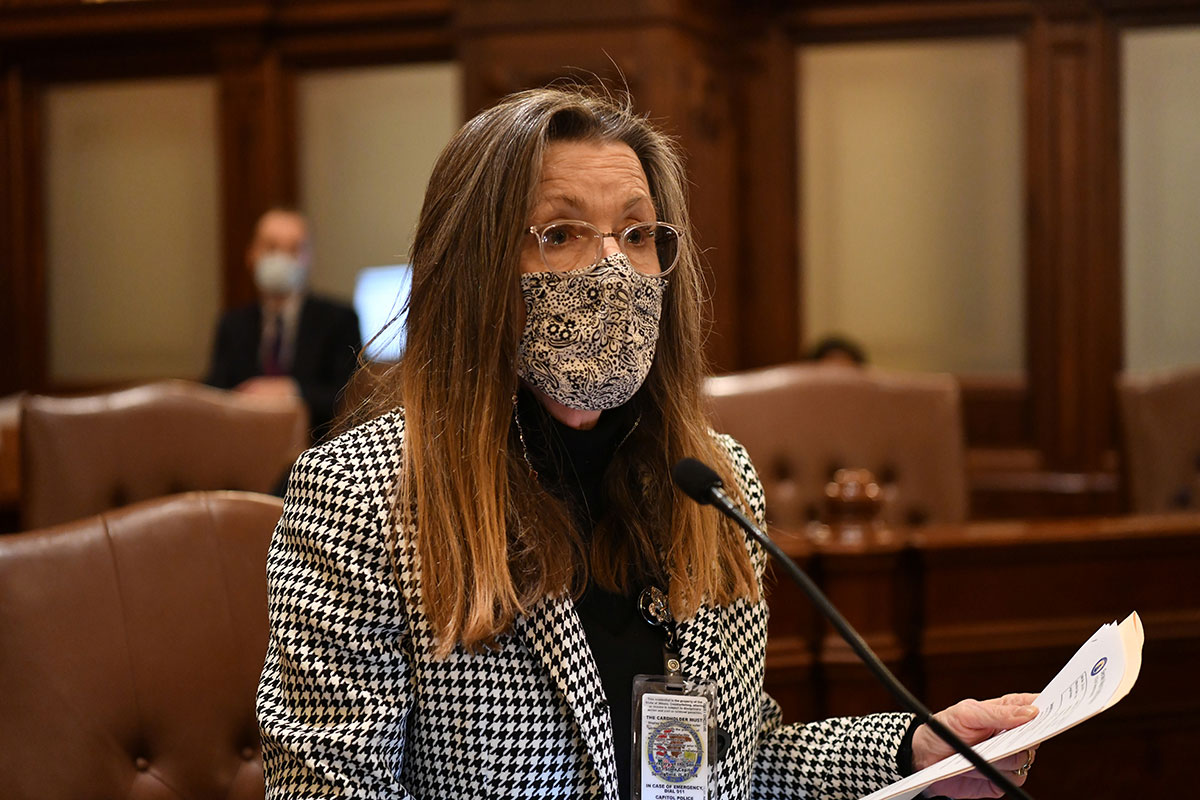 SPRINGFIELD – A career-long advocate for the fight against the ongoing opioid epidemic, State Senator Melinda Bush fought during the spring legislative session to make opioid overdose reversal drugs more accessible and provide people with more education surrounding the consequences of opioids.
SPRINGFIELD – A career-long advocate for the fight against the ongoing opioid epidemic, State Senator Melinda Bush fought during the spring legislative session to make opioid overdose reversal drugs more accessible and provide people with more education surrounding the consequences of opioids.
“We all know someone who has a friend or family member that struggles with addiction — and the thought of that person losing their battle with opioids when lifesaving medication is available is devastating,” said Bush (D-Grayslake). “We must put an end to the red tape and hurdles people have to go through to receive naloxone so we can tackle the crisis head on.”
Bush’s law – House Bill 4408 – prohibits insurers and Medicaid from charging a copay for naloxone, an opioid suppressant. Naloxone can be lifesaving for people overdosing on opioids, but can often be inaccessible with a cost of up to $140 for two doses.
“It’s simple: naloxone saves lives,” Bush said. “The more accessible naloxone is, the better.”
Senate Bill 2535 – also championed by Bush and signed into law Thursday – requires pharmacists to inform the patient that opioids are addictive and offer to give the patient naloxone – a common opioid reversal medication.
More than 75,000 people died from an opioid overdose in 2020 – and in one out of three cases, a bystander was present who could have saved the person’s life, had naloxone been accessible.
Since first entering the General Assembly, Bush has been a steadfast advocate on fighting the ongoing opioid crisis. In 2015, she championed legislation to make naloxone more accessible and affordable to law enforcement agencies. Both measures signed Thursday are another step toward saving lives from the deadly effects of opioids.
“The opioid epidemic is a serious and complicated issue that only continues to get worse,” Bush said. “The COVID-19 pandemic has further exacerbated the opioid crisis, especially amongst vulnerable populations. We must tackle this crisis head on.”
House Bill 4408 and Senate Bill 2535 were both signed into law Thursday.













 © 2026 Illinois Senate Democratic Caucus
© 2026 Illinois Senate Democratic Caucus